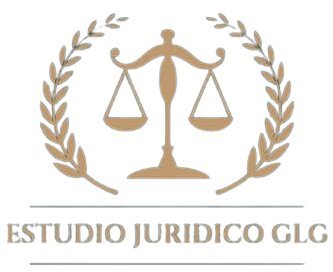Best Collaborative Law Lawyers in Buenos Aires
Share your needs with us, get contacted by law firms.
Free. Takes 2 min.
Free Guide to Hiring a Family Lawyer
List of the best lawyers in Buenos Aires, Argentina
About Collaborative Law in Buenos Aires, Argentina:
Collaborative Law is a legal process in Buenos Aires, Argentina, where parties work together with their lawyers in a cooperative and non-adversarial manner to resolve disputes. This approach aims to find solutions that are mutually acceptable and tailored to the specific needs of the parties involved. Collaborative Law offers a more amicable and efficient way to resolve conflicts compared to traditional litigation.
Why You May Need a Lawyer:
You may need a lawyer in Collaborative Law to guide you through the process, ensure your rights are protected, and help you reach a fair and equitable resolution. A lawyer can provide legal advice, assist in negotiations, and represent your interests effectively during the collaborative process.
Local Laws Overview:
In Buenos Aires, Argentina, Collaborative Law is governed by the Collaborative Law Act, which outlines the procedures and requirements for conducting collaborative proceedings. Local laws emphasize the importance of cooperation, communication, and transparency between parties to reach a resolution without resorting to court intervention.
Frequently Asked Questions:
1. What types of disputes can be resolved through Collaborative Law?
Collaborative Law can be used to resolve various disputes, including family law matters, civil disputes, and commercial conflicts.
2. How does Collaborative Law differ from traditional litigation?
Collaborative Law promotes a cooperative approach where parties work together to find mutually beneficial solutions, whereas litigation involves a more adversarial process with court intervention.
3. Is Collaborative Law legally binding in Buenos Aires, Argentina?
Yes, the agreements reached through Collaborative Law are legally binding once they have been signed by the parties and approved by the court.
4. Do I need a lawyer to participate in Collaborative Law?
It is recommended to have a lawyer represent you in Collaborative Law to ensure your rights are protected and your interests are advocated for effectively.
5. How long does Collaborative Law typically take to resolve a dispute?
The timeline for resolving a dispute through Collaborative Law can vary depending on the complexity of the issues involved and the willingness of the parties to cooperate. On average, Collaborative Law cases can be resolved more quickly than traditional litigation.
6. Are the discussions in Collaborative Law confidential?
Yes, discussions in Collaborative Law are confidential, and information shared during the process cannot be used in court proceedings.
7. What happens if the parties cannot reach a resolution through Collaborative Law?
If the parties are unable to reach a resolution through Collaborative Law, they may pursue other dispute resolution methods, such as mediation or litigation.
8. Can children be involved in Collaborative Law proceedings?
Children can be involved in Collaborative Law proceedings, especially in family law matters where their interests are a primary focus. Child specialists may be appointed to ensure the needs of children are considered during the process.
9. How much does it cost to engage in Collaborative Law in Buenos Aires, Argentina?
The cost of Collaborative Law can vary depending on the complexity of the case, the number of meetings required, and the fees charged by the lawyers involved. It is advisable to discuss fees and costs with your lawyer before proceeding with Collaborative Law.
10. Can I switch from Collaborative Law to litigation if needed?
If the parties are unable to reach a resolution through Collaborative Law, they may choose to pursue litigation to resolve the dispute. It is important to discuss your options with your lawyer before making a decision.
Additional Resources:
For more information on Collaborative Law in Buenos Aires, Argentina, you can contact the Collaborative Law Association of Buenos Aires or seek guidance from the Ministry of Justice and Human Rights.
Next Steps:
If you require legal assistance in Collaborative Law in Buenos Aires, Argentina, consider consulting with a qualified and experienced lawyer who specializes in this area of law. Your lawyer can guide you through the collaborative process, protect your interests, and help you achieve a fair and satisfactory resolution to your dispute.
Lawzana helps you find the best lawyers and law firms in Buenos Aires through a curated and pre-screened list of qualified legal professionals. Our platform offers rankings and detailed profiles of attorneys and law firms, allowing you to compare based on practice areas, including Collaborative Law, experience, and client feedback.
Each profile includes a description of the firm's areas of practice, client reviews, team members and partners, year of establishment, spoken languages, office locations, contact information, social media presence, and any published articles or resources. Most firms on our platform speak English and are experienced in both local and international legal matters.
Get a quote from top-rated law firms in Buenos Aires, Argentina — quickly, securely, and without unnecessary hassle.
Disclaimer:
The information provided on this page is for general informational purposes only and does not constitute legal advice. While we strive to ensure the accuracy and relevance of the content, legal information may change over time, and interpretations of the law can vary. You should always consult with a qualified legal professional for advice specific to your situation.
We disclaim all liability for actions taken or not taken based on the content of this page. If you believe any information is incorrect or outdated, please contact us, and we will review and update it where appropriate.














